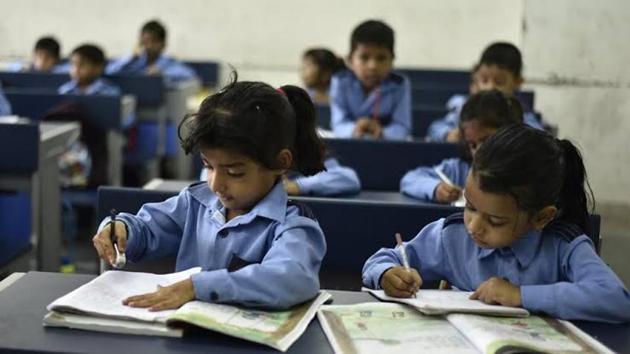Mental health programmes in schools imperative
Mental health was not considered pertinent in school and college education. Neither, of course, was sex education. In fact, even discussing sex was taboo, and mental health carried a stigma about it.
A clinical psychologist I met recently bemoaned the lack of mental health programmes in educational institutions, especially schools, which could help students navigate their lives better through this demanding period.

“We assume that children — and particularly those in their early teens — have no crisis. It is terribly misleading. Early warning signs ignored could have damaging repercussions later in life,’’ said the psychologist.
A couple of decades back, I may have viewed this with scepticism. Depression was a fact of life, of course, but those afflicted with it were thought to be mainly the old and infirm, seriously handicapped or ill. Ordinary children? Naah!
This thinking had its roots in how we grew up in the 1960s and 70s. Mental health was not considered pertinent in school and college education. Neither, of course, was sex education. In fact, even discussing sex was taboo, and mental health carried a stigma about it.
My original viewpoint, as I learnt over the years, was strong on societal stereotyping and highly flawed on evidence. We now know how important sex education is for schoolchildren and are gradually coming to terms that psychological well-being is even more significant.
That even the seemingly most capable and celebrated among us can be adversely affected in this aspect is becoming increasingly public after some have (admirably) started opening up about their travails.
Last month I interviewed the great swimmer Michael Phelps at the Hindustan Times Leadership Summit where he spoke about how he was ‘close to taking his own life’ after the 2012 Olympics.
Phelps was only 27 then and already a multiple gold medal-winning Olympian (he was to finish with 28 medals overall, 23 gold).But instead of being on top of the world, he wanted the earth to open up and swallow him!
Phelps’s problem, the clinical psychologist mentioned at the start, surmised was most likely an unresolved conflict that gripped his mind when he was much younger, and which precipitated into a serious crisis much later.
More and more sportspersons are now disclosing the emotional turmoil they experienced even while achieving magnificent milestones. In cricket, Virat Kohli has spoken about the stress he underwent when he was much younger.
Glen Maxwell, the hard-hitting Australian, took time off from the game late last year, surprising even his teammates who thought it difficult that a fun-loving prankster like him could ever be depressed.
I am using sports stars as examples here because one associates them with fine physical health and success, of course, but also a sunny, optimistic outlook on life. That, as is now becoming increasingly known, is misleading.
The need for mental health programmes in educational institutions, however, must go beyond depression and allied illnesses. The programmes should not be restrictive and rather look at a whole gamut of issues. It should identify a tendency for deviant behaviour and restricting it through early intervention, for instance.
Recently, stories about a bunch of boys of an elite school sharing lewd and potentially dangerous WhatsApp messages about girls from the same institute were the buzz of the city.
Those in the know of primary education aver this is not an isolated instance.
Several schools, including those with high reputations, have similar problems, which have either been suppressed or not yet come to notice.
Well-structured mental health programmes could stymie such problems. But these programmes don’t have to deal with only negative issues. That would be restrictive in its scope.
Some students need to conquer fear, some need the inspiration to succeed, some need a helping hand through a relationship even when it is buoyant, some may just want a better understanding of their own emotions.
The range of issues is limitless. What is important is that these must be addressed through early intervention. This requires mental health programmes (a more appealing definition needs to be found!) becoming part of the curriculum, at least on a weekly basis to start with.
This is not a difficult provision for elite schools to make (understand many in Mumbai have commenced this in some form), but state and municipal-run schools must also benefit if the exercise not to be self-defeating.
The government and civic bodies need to ensure this happens across the board. It impacts not just the lives of schoolchildren, but also society, city and country.
Stay updated with all the Breaking News and Latest News from Mumbai. Click here for comprehensive coverage of top Cities including Bengaluru, Delhi, Hyderabad, and more across India along with Stay informed on the latest happenings in World News.
Stay updated with all the Breaking News and Latest News from Mumbai. Click here for comprehensive coverage of top Cities including Bengaluru, Delhi, Hyderabad, and more across India along with Stay informed on the latest happenings in World News.






